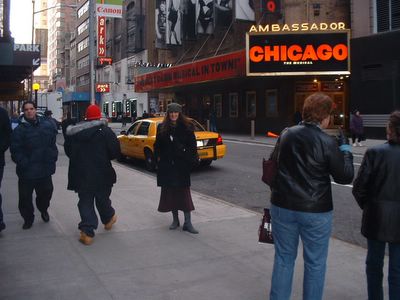"I believe in God, family and McDonalds" Ray Kroc
I. MarxMarx’s critique of capitalism-social organization launched the links between how societies are formed and the material conditions underlying the means of production. Marx was very concerned with the relationship between the means of the production and the relations of production, i.e., the ways people are treated, the interrelationship among workers and the products of their labor. He also points out the dominant/submissive relations that come necessarily to exist in capitalism between the workers (proletariats) and the small elite of owners in power (bourgeoisie), creating a radical imbalance between haves and have nots. The consequences of this system, as Marx suggests, generates alienation or isolation in the individual or the worker, suppressing her creativity, and transforms the worker into a vehicle that primarily follows rules and consumes material goods. Consequently, Marx believed that through alienation of the individual two kinds of cultural consciousness will become visible: class consciousness and false consciousness.
Class consciousness will cause proletarians to realize how capitalism works and how it affects them. They will develop a class consciousness; they will see how they are being oppressed and, therefore the workers will rebel against the bourgeois. On the other hand, Marx also beliefs that in the mean time the workers do not rebel because of false consciousness, the incorrect assumptions about how the capitalism works. Marx believed that capitalism feeds the idea that if you only work hard you can buy stuff and maybe be rich, and this is a form of denial, moreover creating a false awareness of their reality.
II. Fast Food
Everyday millions of Americans drive to fast food restaurants and consume food full of saturated fat and calories increasing their chance for heart disease and obesity. The American fast food industry is guided by two principals: making food as cheap as possible, and using cheap labor supplied by teenagers, unskilled labor and with no unionized workers. To keep prices low companies such McDonalds deal directly with slaughterhouses that hire illegal immigrants who are willing to work hard for less money and utterly with no rights, making the Meatpacking Company one of the most dangerous places to work.
Last Sunday I went to a local bakery store near my house on South Street and I had coffee and fresh baked onion read for not more than $ 3 dollars. It was very pleasant to sit and read the paper and see people buying bread in the morning. After awhile I walked towards Open Harvest, a local coop grocery store. On my way there I had to walk past a fast food restaurant. I was struck by the overwhelming smell of grease. Moreover the aesthetics of the building itself were not agreeable, the cement concrete seemed to dominated the surroundings of the building filled with advertisement pictures on the windows of big burgers and slices and pieces of greasy bacon. The parking a lot was full of cars parking and also there was a line of cars waiting for their turn on the drive thru. I could not help but be struck, again, by the contrast between this frantic world of fast food and the pleasant scene of the early morning.
III. MarxThe essential element of false consciousness, for Marx, is the conviction that what is of true worth in life is, not one’s own labor or creativity or self-fulfillment, but what one can buy with the products of one’s labor. It is a corollary of this conviction that what is of true worth is immediate sensual gratification. Macdonald’s perfectly exemplifies, in this sense, false consciousness.. The food is quick, laced with chemicals designed to stimulate rapid consumption, and entirely unsatisfying in the sense that it creates an appetite for an unhealthy diet, i.e. a diet which if consistently pursued will diminish one’s powers of creativity and produce simply the desire to consume more of the same. You can never get enough. Yet, the more you get the less satisfied you are and, yet, you keep coming back.
False consciousness is denial. It is manufactured by capitalism itself, not this or that CEO within the system, but the system itself, to convince people that all they need to do to be happy is consume, and consume, and consume, without end. Fast food, like religion, is the opiate of the masses. It keeps us sedated and under control.
In my view Marx ‘s theory perfectly explains the false consciousness present in our culture’s addiction to fast food. However, his views are flawed, so far as I can see, in his belief that the proletariat would rebel against the forces that creates class consciousness. I saw no evidence of incipient worker rebellion last Sunday. The parking lot was full of working people who evidently cannot get enough of cheap, unsatisfying food produced by exploitation. Capitalism manipulates people with the idea they have choices and as long as people have enough money to be satisfy they will buy this idea. They believe, with Ray Kroc, in God, family, and Macdonald’s.
Susana Pestana










